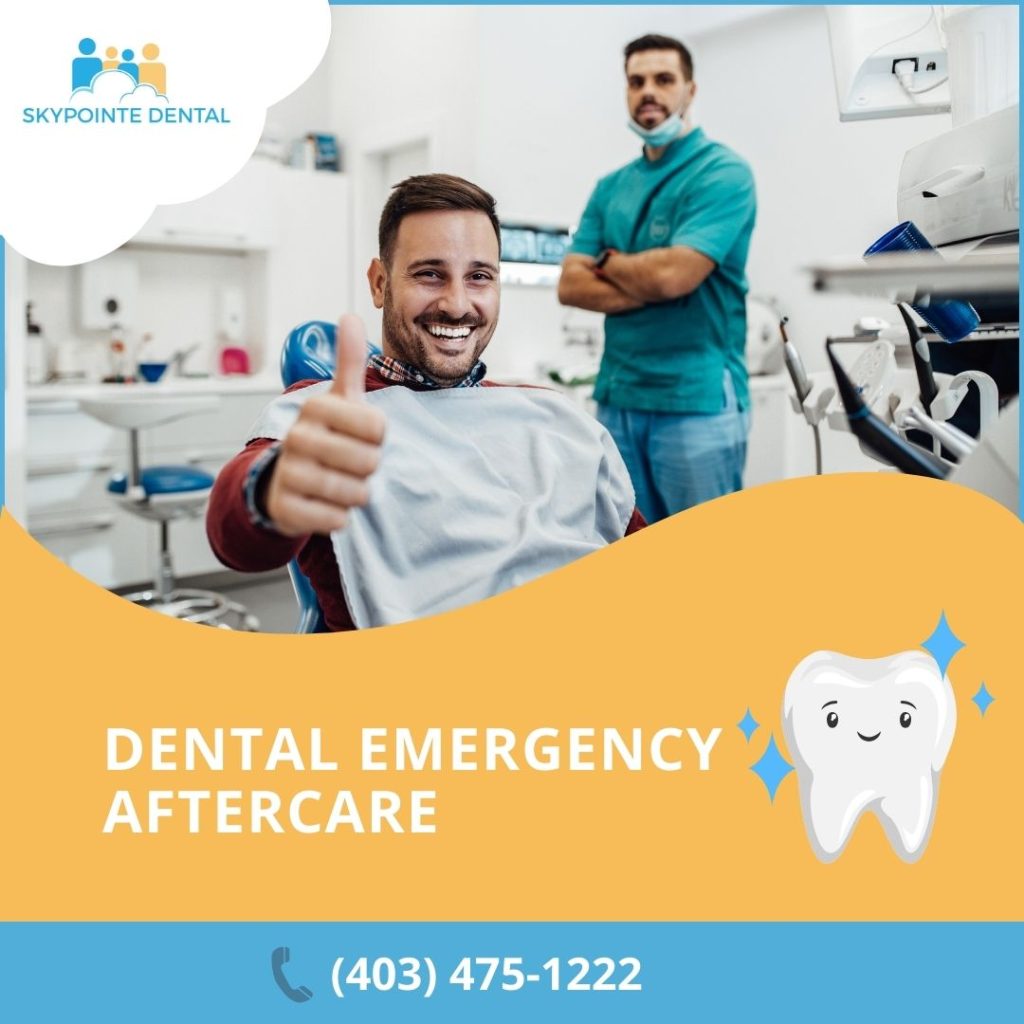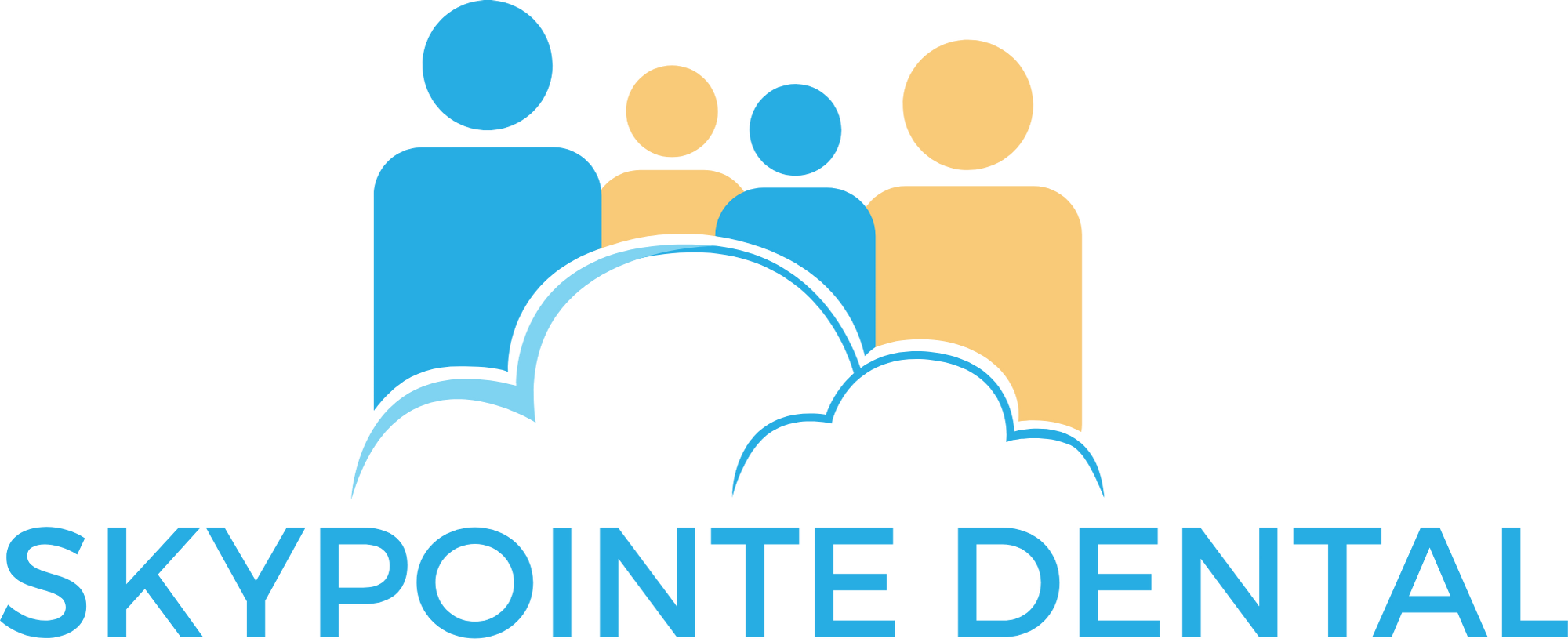When you experience a dental emergency, getting immediate treatment is the first critical step. However, the care you give your mouth after the treatment can be just as important for your recovery and long-term oral health.
At Skypointe Dental in Calgary NE, we understand the importance of proper aftercare following an emergency dental procedure. This guide will help you navigate the crucial steps to ensure a smooth and speedy recovery.
Immediate Steps After Common Dental Emergencies
Each type of dental emergency has specific aftercare instructions to follow. Here's what you need to know for some of the most common scenarios:
1. Tooth Extraction: After a tooth extraction, it's normal to experience some swelling and discomfort. Here’s how to manage it:
- Bite on a Gauze Pad: To control bleeding, gently bite on a gauze pad for 30-45 minutes immediately after the procedure.
- Avoid Rinsing: For the first 24 hours, avoid rinsing your mouth, drinking through a straw, or vigorous spitting, as these actions can dislodge the blood clot that forms in the socket.
- Apply Ice: Use an ice pack on the outside of your cheek for 10-20 minutes at a time to reduce swelling.
2. Root Canal Treatment: Root canals can save your tooth, but proper aftercare is essential to ensure healing:
- Take Prescribed Medications: Follow your dentist's instructions on taking any prescribed antibiotics or painkillers.
- Eat Soft Foods: Stick to soft foods and avoid chewing on the treated side until your dentist gives the go-ahead.
- Maintain Oral Hygiene: Brush and floss regularly, but be gentle around the treated tooth to avoid irritation.
3. Dental Trauma (e.g., Chipped or Knocked-Out Teeth): If you've suffered dental trauma, here's how to protect the area and promote healing:
- Rinse Your Mouth: Gently rinse your mouth with warm salt water to clean the area.
- Protect the Tooth: If a tooth has been knocked out and reinserted, avoid touching it and keep it stable. Avoid chewing with that side of your mouth.
- Cold Compress: Apply a cold compress to the outside of your mouth to minimize swelling and discomfort.
4. Treatment of Infections: Dental infections can be serious, and following your dentist's instructions is key:
- Complete the Full Course of Antibiotics: Even if symptoms improve, finish the entire course of antibiotics to prevent the infection from returning.
- Monitor Symptoms: Watch for signs of the infection worsening, such as increased pain, swelling, or fever, and contact your dentist if these occur.
Dos and Don’ts for a Smooth Recovery
Following these general guidelines will help ensure your recovery is as smooth as possible:
Do:
- Eat Soft Foods: Foods like yogurt, mashed potatoes, and smoothies are gentle on your mouth and won’t irritate treated areas.
- Stay Hydrated: Drink plenty of water to stay hydrated and support healing.
- Rest: Give your body time to heal by avoiding strenuous activities for the first couple of days after your procedure.
Don’t:
- Avoid Smoking and Alcohol: These can delay healing and increase the risk of complications.
- Skip Your Oral Hygiene Routine: Continue brushing and flossing, but be extra careful around the treated area. Your dentist may recommend using a mouthwash to keep the area clean.
- Consume Hard or Crunchy Foods: Foods like nuts, chips, or hard candies can irritate or damage treated areas.
When to Contact Skypointe Dental in Calgary NE

It's important to monitor your recovery and know when to seek additional help. Contact Skypointe Dental immediately if you experience any of the following:
- Excessive Bleeding: If bleeding continues after the first 24 hours or is heavy and difficult to control.
- Persistent or Severe Pain: Some discomfort is normal, but if the pain is intense and doesn’t subside with painkillers, it could be a sign of a complication.
- Signs of Infection: Increased swelling, fever, or a bad taste in your mouth could indicate an infection.
- Difficulty Breathing or Swallowing: This is rare but serious and requires immediate attention.
Proper aftercare is essential for a successful recovery following a dental emergency. By following the guidelines outlined in this article, you can minimize discomfort, prevent complications, and ensure your mouth heals properly.
At Skypointe Dental in Calgary NE, we are here to support you every step of the way. If you have any concerns or questions about your recovery, don’t hesitate to contact us.
Ready for a Consultation? If you've experienced a dental emergency or need advice on aftercare, call Skypointe Dental in Calgary NE today to schedule a follow-up appointment.
Your health and comfort are our top priorities, and we’re here to help you achieve a full recovery.
